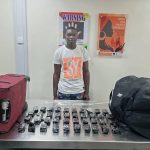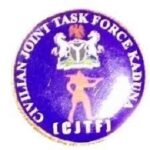NGO raises concern over rising cases of incest in Plateau
March 16, 2022
Mrs. Vivian Abara, Team Lead for Peace Advancement, Action Against Violence and Rape Foundation (PAAAVARF) has expressed worry over the rising cases of incest in Plateau.
Abara, in an interview with the News Agency of Nigeria (NAN) on Wednesday in Jos, described the situation as “alarming”
The team leader blamed the ugly trend on the cultural and religious grounds, where these ungodly acts were usually shielded, rather than exposing the perpetrators.
She added that the fear of stigmatisation, blame and shame culture were contributing factors responsible for promoting rather than curbing the situation.
She also said that the under reporting of the cases by the media further contributed to the increase in the cases, adding that most people were not aware of such heinous acts.
“Cases of incest is really on the increase in Plateau, especially among fathers and daughters.
“You see, the culture of shame and blame stigmatisation, are all reasons why they don’t report them.
“So even when you get such cases, to even pull through in courts, is a big one, because it gets to a point where all the witnesses will pull out,” she said
Abara, who expressed concern over the constant culture of shielding the perpetrators, said it usually left activists helpless as those involved would rather preserve family reputation at the detriment of the victims values and sanity.
“A case of that magnitude is a capital offence because that would go with either life imprisonment, or so many years in jail.
“So such cases need glaring evidence but when the witnesses refuses to come forward, what do we do?
“Some mothers hide their children and shield their husbands, when they know it is actually happening.
“We have a girl that is still living with her father and mother and the father has been defiling her since she was seven.
“The mother visited her and blackmailed her into going back home. Now she has gone back home and the act may continue, so you see, it’s a cycle, and a vicious one,” she said.
The PAAAVARF Team Lead said poverty, lack of education and joblessness were major factors that contributed to the growth of this scourge on the part of the perpetrators who were mostly found in slums.
“Poverty, lack of education, Let me give you examples, a place like Carbon, Gada-biyu, Jenta Adamu, they have a lot of slums.
“In the morning, the mother happens to run out to look for what the children will eat; sometimes if the father is jobless, he stays walking around and then before you know it, he begins to have ideas.
“Then the young boys that defile children, they are jobless, they sit there and they see these little girls roaming about without any parental guidance, then they pounce on them” she said.
She maintained that sensitization and awareness remained the most strategic tool in curbing the menace.
Abara therefore called on all relevant stakeholders to put hands together to ensure that the scourge was kicked out of the society. (NAN)








